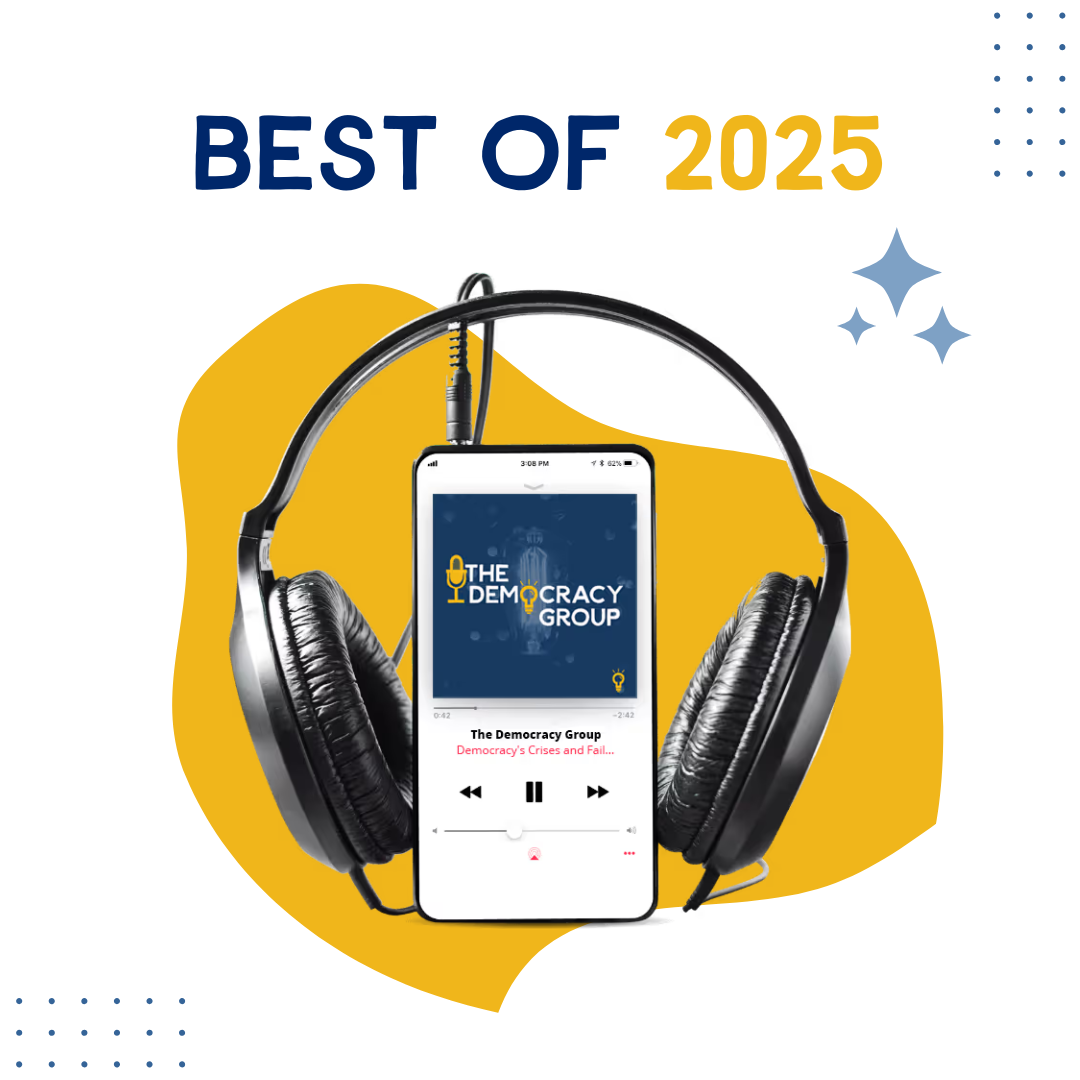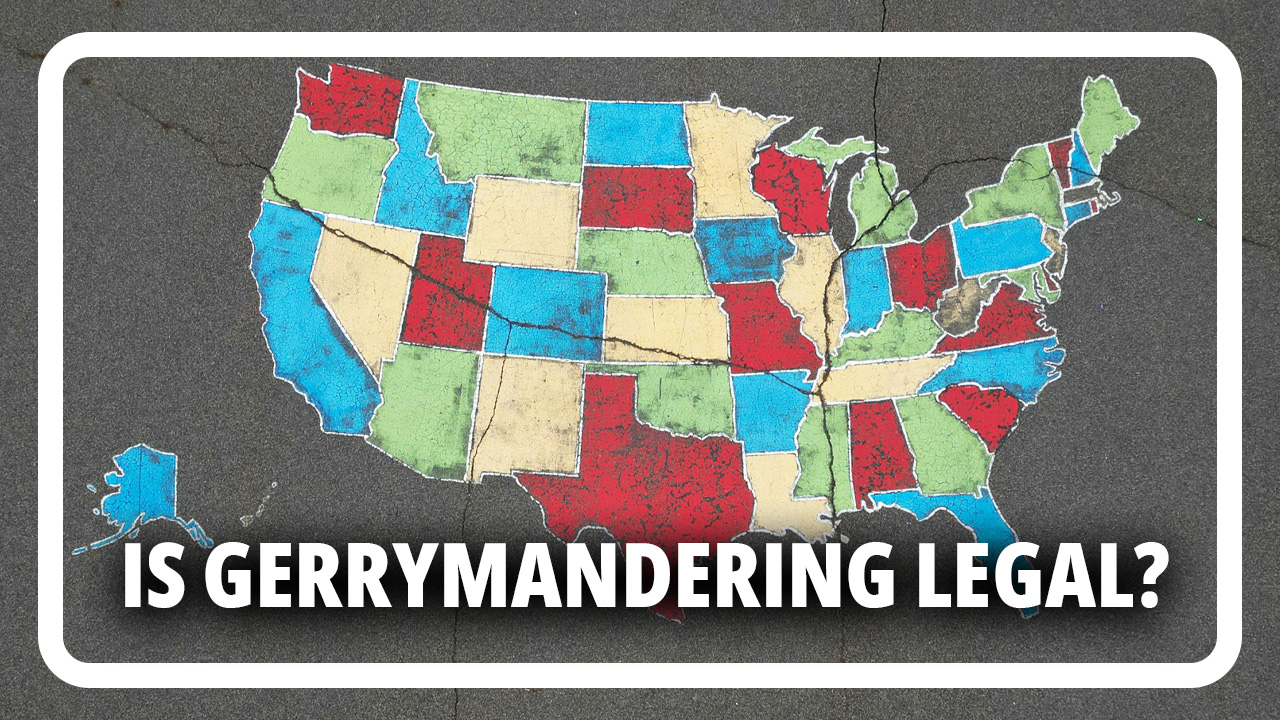
Subscribe to receive a biweekly collection of the hottest podcast episodes from the network, upcoming special events, expert features, and news from your favorite shows.
Subscribe to our NewsletterWith a growing network of podcasts and organizations that create educational content about democracy, civic engagement and civil discourse, we caught up with one of our hosts Michael Baranowski about The Politics Guys, bridging differences across the political spectrum and the importance of meaningful conversations.
Q: Tell me about yourself and The Politics Guys.
Michael: I am a political scientist by training and have been for many decades at this point. I got my Ph.D. from the University of Kentucky back in 1997 focused on American politics and public policy and have been teaching pretty much ever since.
I started the politics guys in early 2015 — it's been a while. I was listening to a number of other podcasts, and there was one that had views from the left and the right. I was not too happy because it seemed to be lacking something, and I thought I could do better than this. I had a friend who was a conservative and who I knew from college days and I said, “You want to try to do this?” And he said, “Sure.” And eight years and 800-some episodes later, here we are.
Q: With such an impressively diverse panel of hosts that includes two political scientists, a law professor, a former Trump administration official and an attorney, how did the idea of getting the team together come about?
Michael: At first, it was just me and Jay, my college friend. We realized that it might be good to bring in some other voices so the next person who came into the show on a regular basis was a former student of mine who became a political scientist, Trey. He’s an interesting combination — an evangelical and a libertarian conservative — and he came onto the show. Then we brought on the law professor who I knew from my time at Northern Kentucky University, Ken Katkin, who brought in a different perspective. He's probably the furthest left of all of us. Then we felt like we wanted to get more conservative voices on and we had folks who listen to the show and friends of the show who said, “Listen, there's a woman, May Mailman, who worked in the Trump administration and you should talk with her.” And we did and we're happy to bring her on the show to get a further right perspective.
We're really big believers in this idea of ideological viewpoint diversity. And that's what we try to bring to the show on a regular basis.
Q: As a political science teacher, how has your teaching background come in handy with being a podcast host?
Michael: I felt that I had an ability both to communicate ideas and also be able to listen and bring in other views and try to find points of agreement and build on that because it’s what I’ve done in the classroom for so long. If a student has a crazy, bizarre, out-there view, you look for that kernel — there's almost always a kernel of something that you can say, “Well, let's take a look at this part of it and let's build from there.” I believe there are very few ideas that are completely dumb or worthless that you can't find common ground to build from and try to find some agreement and that's what I tried to bring to the podcast. I think we've been pretty successful doing that.
I think more than anything else is to give people a sense that whoever the other side is, they aren't necessarily stupid and or evil. Oftentimes, that's the view that is so easy to fall into. It's like, “Well, these people clearly are not arguing in good faith. So they're bad or evil.” And more often than not, at least for most people, when you really talk to them, you find out that's either not the case or it's more complicated than that. I think it's important to have these conversations to see that, and not just for us to model that, but for people to go out in their lives and have those conversations and not just be talking with people they already agree with, because I think those are the easiest conversations to have. I think oftentimes, they're the least helpful, the least useful, the least kind of valuable conversation standard.
Q: Looking ahead, are there any goals or aspirations for the show?
Michael: One thing that we're trying to do is to reach more people and that can be difficult because so much of what we see out there, both in podcasts and the wider media landscape, is people preaching to the already converted. And I get the economic incentives for doing that. I think podcasts and media that care about consensus and building the things that make democracy work are the shows that have to work much harder because there isn't that natural audience. It's really important that we do a good job of selling what we do and the importance of what we do because democracy is regular, consistent work, which sometimes isn't all that fun.
I believe us and really all the podcasts in The Democracy Group, we have a harder job than those far right and far left shows that just scream about how awful the other side is, but I think our work is much more important in that larger sense. And so that’s why I'm proud to be part of The Democracy Group because I know that we have that shared mission.
Q: Is there a conversation on the show that was particularly memorable?
Michael: Probably the conversation we had with four hosts — we almost never do that. After January 6, everyone was pretty stunned and so that was a difficult conversation to have when so much was swirling around. But being able to check in with a bunch of different people, and not just amplify the initial intense feelings that I had, I think that was a helpful thing and one of my most memorable conversations on the show.

This week Trey, Ken and Mike come together talk about Wednesday’s storming of the Capital. In this focused episode the hosts cover issues including the political ramifications of the violent protest, the culpability of President Trump, the role of social media, the support of attackers, the division between the major political parties, the possibility of impeachment, and the future of the American Presidency.
Subscribe to receive a biweekly collection of the hottest podcast episodes from the network, upcoming special events, expert features, and news from your favorite shows.
Subscribe to our Newsletter
The Democracy Group's Best Of 2025 series is back for another year!
Read Post
Is Gerrymandering Legal? Learn what gerrymandering is, how it shapes elections before votes are cast, and what citizens can do to protect democracy from unfair maps.
Read Post.png)
You're invited: Celebrate our podcast fellows!
Read Post